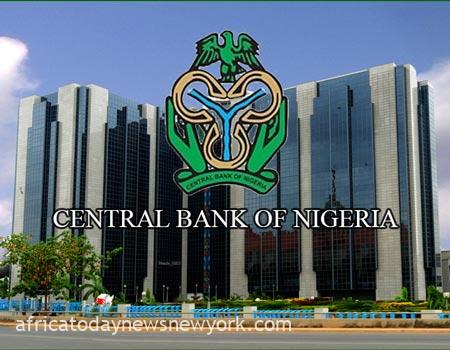The Central Bank of Nigeria (CBN) has announced its intention to initiate a new phase of banking recapitalisation for the Deposit Money Banks (DMBs).
At the 58th Annual Bankers’ Dinner organized by the Chartered Institute of Bankers of Nigeria (CIBN) on Friday night in Lagos, Mr. Olayemi Cardoso, the CBN Governor, made this announcement.
As per the report by the News Agency of Nigeria (NAN), the planned recapitalization implies that Deposit Money Banks (DMBs) will need to raise additional capital to address the requirements of Nigeria’s economy.
President Bola Ahmed Tinubu, in his Policy Advisory Council report on the national economy, has set an ambitious target of achieving a Gross Domestic Product (GDP) of one trillion dollars by 2030, with clearly outlined priority areas and strategies, as highlighted by Cardoso.
He underlined the importance, stating that banks must have a role in the envisaged one trillion dollars economy by 2030.
Cardoso noted that, in light of the substantial developmental role the apex bank expects from banks over the next seven years, it has become necessary to request their recapitalization.
To reach the goal, Cardoso stated that Nigeria needed to undergo a swifter and more inclusive economic expansion.
‘The administration has already commenced this journey through fiscal reforms, including the removal of petrol subsidies and the unification of the foreign exchange market rate.’
Read also: Nigerian Manufacturers Fume Over CBN Price Verification Portal
‘Considering the policy imperatives and the projected economic growth, it is crucial for us to evaluate the adequacy of our banking industry to serve the envisioned larger economy.’
‘It is not just about the stability of the financial system in the present moment, as we have already established that the current assessment shows stability.’
‘However, we need to ask ourselves: Will Nigerian banks have sufficient capital relative to the financial system’s needs in servicing a $1.0 trillion economy in the near future? In my opinion, the answer is “No!” unless we take action.’
‘Therefore, we must make difficult decisions regarding capital adequacy. As a first step, we will be directing banks to increase their capital,’ he said.
The CBN governor also confirmed the approval of another round of Open Market Operations (OMOs) to withdraw excess liquidity from the banking system.
OMOs stand as the key monetary policy instrument, allowing the central bank to buy or sell securities with financial institutions in the open markets. This mechanism plays a pivotal role in influencing the amount of money in circulation and/or interest rates.
Cardoso said, ‘An OMO auction was recently held with a stop rate of 17.5 per cent for the one-year tenor, attracting oversubscription of N350 billion.’
‘Another round of OMO has been approved to further reduce excess liquidity.’
‘Offering N108.1 billion worth of Treasury Bills with three tenors to the investing public, which can help reduce liquidity in the banking system and support government fundraising.’
According to him, the apex bank will deploy its monetary policy tools to keep inflation at a low and stable level.
He said, ‘the Central Bank of Nigeria is committed to achieving monetary and price stability. This is not just a technical objective, but it has real-life implications for the well-being of our citizens.’
‘Through targeted policies, transparent market operations, and coordination between monetary and fiscal authorities, we can ensure a more stable exchange rate, control inflation, and create an enabling environment for businesses and individuals to thrive.’
He observed that the apex bank had implemented measures to enhance the effectiveness of its monetary policy tools and strengthen the transmission mechanism, aiming for greater impact on the economy.
He added that the ability of the monetary policy committee to influence the economy through its decisions had diminished, given that the channels through which monetary policy is transmitted have experienced disruptions.
It was also disclosed by the CBN governor that the apex bank is contemplating alterations to the country’s foreign exchange regulations, with the intention of formulating new guidelines and legislation.
He made it clear that consultation with banks and foreign exchange operators would precede any final decisions.
